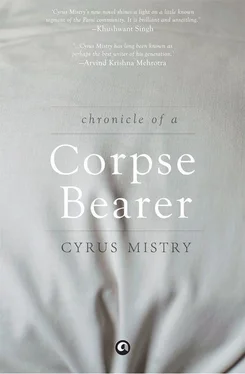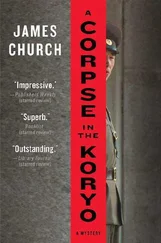The British left India, Indians took over, but nothing really changed. When India achieved Independence from its British rulers, if I remember rightly, Gandhi was in favour of disbanding the Congress party. He wanted to abandon Western-style confrontational politics, and concentrate on reaffirming basic values of self-help, service and upliftment of all; on rebuilding a community-based consensus at the village level. But Gandhi fell to the bullets of a Hindu fundamentalist who believed he had betrayed the nation. After him, many leaders rose to power who strove to create a nation out of fragmented regional interests, but not one of them shared his vision. Nor did any of them care to pause and look back, reassess where, along the high road of history, he or she may have taken a wrong turn.
As in the usual course of things, earthquakes, floods, droughts, riots, wars, exploitation of the helpless, accidents, calamities of every sort continue to take their toll — the meaningless, mindless decimation of millions of human ants, or should I say, vermin? I’m not talking merely about the misery of the poor, or the disingenuousness of the powerful, but of that unstoppable merry-go-round of human suffering, of the abominable lack of any higher meaning or significance to life, entirely at the mercy as it is of random death. I have lived through almost sixty years of what was probably a historically significant century, and sometimes I do wish I had taken better notes, paid greater heed to Temoo’s radio for the news of the world it gave me. But I never cared to: the torrent of human suffering ran unabated, shutting out every glimmer of hope.
Politicians failed to act, reneged on promises; betrayed the people who elected them to office. Everywhere, everyone in public life, whoever he or she might be, is on the make, feathering a private nest. And so it has continued for decades. The only change I can make out in this compulsive industry is that incidents of fraudulence, cheating and theft of public money have accelerated both in frequency and volume beyond the wildest dreams of even those who first concocted them; until the very concept of probity in public life has become laughable.

Out here in my narrow microcosm of the Towers of Silence, too, so much has changed. For one thing, the roll call of the dead has been relentless. I don’t mean just the dead we attend to, but from among our own.
Poor Bujji was the first to go. His son had found a job, his daughter a husband. Living alone, without any visitors ever coming up to his flat, his body withered and dried like a twig. His front door had to be forced in when he didn’t appear for several days, and the smell from his flat became unmistakable. . A man, once proud of his looks, slunk into himself, and faced death alone in an attic room.
Aimai, much older than he, died shortly after. . And within six months, after a very brief illness, my friend Rustom, too. It was as if the bond between him and his mother was more essential than any of us had realized. Surprisingly, Vera didn’t take it so badly.
For a while, poor Temoo continued to potter about trying to help me in the kitchen. But the innocuous lump in his stomach had grown into a sepulchral mound that nagged him to tears; until one day, it burst and killed him of internal haemorrhaging. It was a bad blow for Farida, as I had always feared it would be.
But not as bad as the one that followed some three years later. Her childhood boyfriend, Khushro, had found a decent, well-paying job and moved out. He promised Farida he would come back and marry her once he had set up a home and saved some money. But he never did. The worst of it was that she didn’t know how to contact him, because he had changed jobs and moved on.
Like her spiritual sister, Vera, who has also remained single, Farida too may be headed for spinsterhood. But Vera at least has her work at the law firm, which is prized highly. Farida’s job is much more low-profile, on the shop floor of a workshop which manufactures nuts and bolts in Parel. Her Uncle Vispy helped her secure it. She enjoys travelling to work and back on a BEST bus everyday, but complains that traffic in the city is growing at an alarming rate.
Hardly anyone is still around who took part in the strike thirty-five years ago. But many of the advantages we wrested from our tussle with the trustees have resulted in positive change. Right now, for instance, there’s some replastering of my building going on. Whitewashing of all quarters every three or four years is a regular feature now. Children of khandhias and nussesalars are given free education up to high school, and easy loans or scholarships are available to those who show promise, or desire a university education. A new community room has been set up near the Albless pavilion, where there’s a carom board, table tennis and a television set.
But even here, at the Towers of Silence, commercial exploitation of properties has begun. Four acres of sylvan land were recently sold to a well-known Bombay builder for vast sums of money, and trees have been cut. Construction of a deluxe block of apartments has commenced; it will be called Ahura Apartments. Apparently, only bonafide Zoroastrians who can afford these exclusive flats, and who have booked them early enough, will move in. I fear for the wild garden of my youth. The teeming city nibbles at its edges. The turn of the wheel may well have become irreversible.

A few days before he died, Temoo begged forgiveness of me.
At the time I speak of, he was seventy-four, and rather obese. His fleshy brown skin hung loose, patchy and discoloured; unhealthy eruptions covered his forehead and other parts of his body. A large mole on his right cheek, which had been dry for some years, had begun to ooze. The protuberance in his abdomen had become more pronounced. When he left his bed to walk to the toilet, he needed to support it with his right hand; in his left, he gripped a stout walking stick.
‘What for?’ I asked him, puzzled, but immediately suspicious.
‘Ah,’ he groaned. ‘You ask me for what. .?’ Tears started rolling down his cheeks, and his voice choked in sniffles and sobs. I was not impressed. In the past, I had seen him produce tears at will.
‘Can you see my suffering?’ he asked. ‘If I were able to, I would go to Framroze and throw myself at his feet. . My Sepideh was taken from me so young. .it was punishment for my sins! Look at me now. .’
And for a few minutes once again he was crying piteously. The notion crossed my mind that what he was about to tell me was something along the lines of what my mother had declared after my first encounters with Sepideh, that it was all a conspiracy hatched by Temoorus to have her seduce me.
‘Hatred was in my heart, Phiroze. . The desire to avenge Rudabeh had consumed me. . But I had no idea that my daughter would fall so completely in love with you, or you with her. .I never thought that you would marry her, and renounce the world. .’
‘But that’s what you asked of me. . That was the condition you made. .’
‘Yes, yes, I know. .but I never thought you would actually agree. That your parents would permit you to follow such a course.’
‘They didn’t have a choice. . Well, while it lasted we were very happy, Seppy and me. I certainly don’t think you need to ask my forgiveness. I’m sure she doesn’t either.’
‘But it didn’t last very long. . That’s my point. My intention was evil. .to harm Framroze. . Instead, it was I who was punished, and my Sepideh taken from me so young. .I miss her so much, Phiroze. .I miss her. .’
Once again, the tears rolled, streaking his pitted brown cheeks with a film of gloss. I had not understood yet what he was on about. I waited patiently for him to come to the point, but my mind had wandered back to the days and weeks that followed Seppy’s sudden demise. .
Читать дальше













